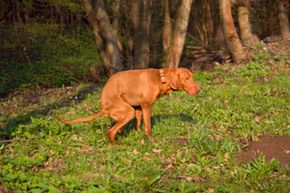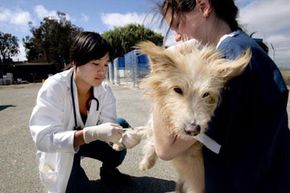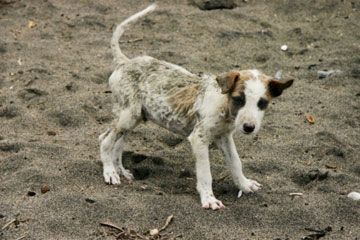It's not something that any dog owner wants to think about, but our sweet, precious little doggies can be afflicted by some seriously disgusting -- and seriously dangerous -- health problems. Worms and worm-like parasites fall into this category. Most of them can infest your dog's intestinal tract, although they can also affect other organs. Most worms are acquired in one of two ways: Your dog consumes something containing the worm or its eggs (such as feces or infested water), or he's bitten by a carrier like a flea or a mosquito.
Regardless of the type of worm, the best remedy is prevention. Clean up after your dog promptly, keep him from eating feces -- including his own -- and don't let him drink from ponds, streams or lakes. It's also important to make sure that he's on preventive treatment for fleas and ticks, as well as heartworm (there are even some combination medications for all three). But how do you know if your dog has worms? In the case of a worm such as tapeworm, you may actually see shed segments -- pieces of the worm's body -- in your dog's feces. However, in most cases, it's more likely that your dog will have symptoms like diarrhea, vomiting or lethargy, all of which can point to a host of different conditions. Typically, your vet will need to test a stool sample or do a blood test to definitively diagnose your dog with worms and determine the best course of treatment.
Advertisement
In this article, we'll take a look at the common types of worms and worm-like parasites that can affect your dog. It won't be pretty, but learning how these nasty critters get into your dog in the first place -- and what symptoms might manifest -- can help your dog become worm-free sooner rather than later. And in some cases, it can save his life. On the next page, we'll start off with some worms that aren't actually worms at all.





